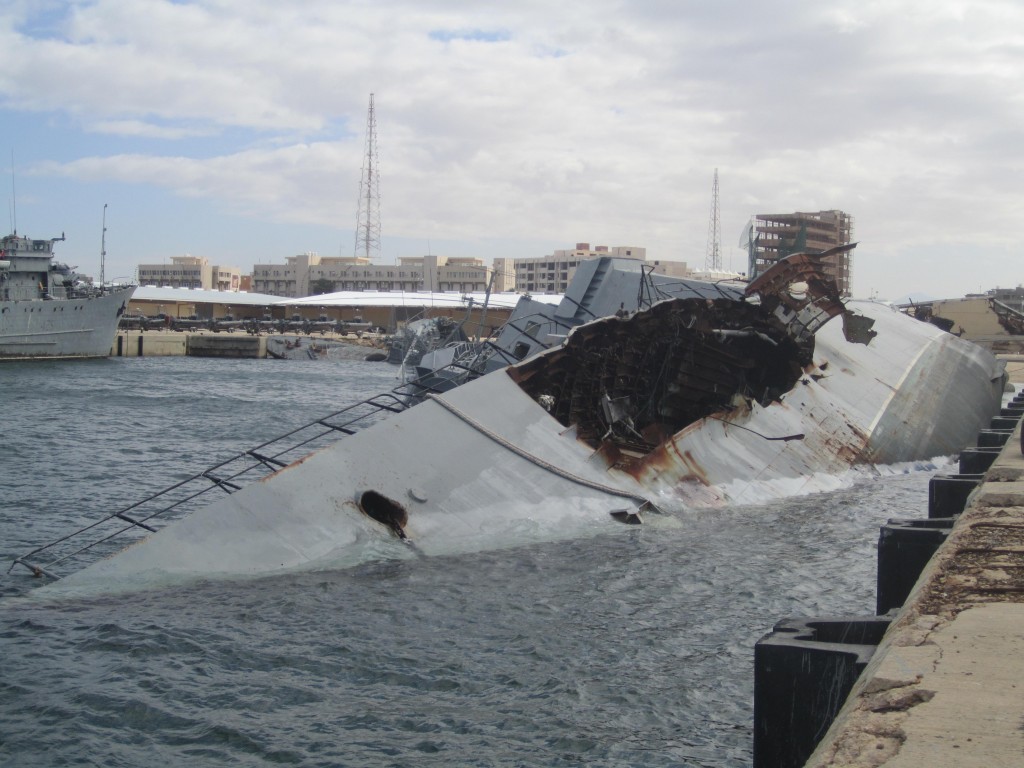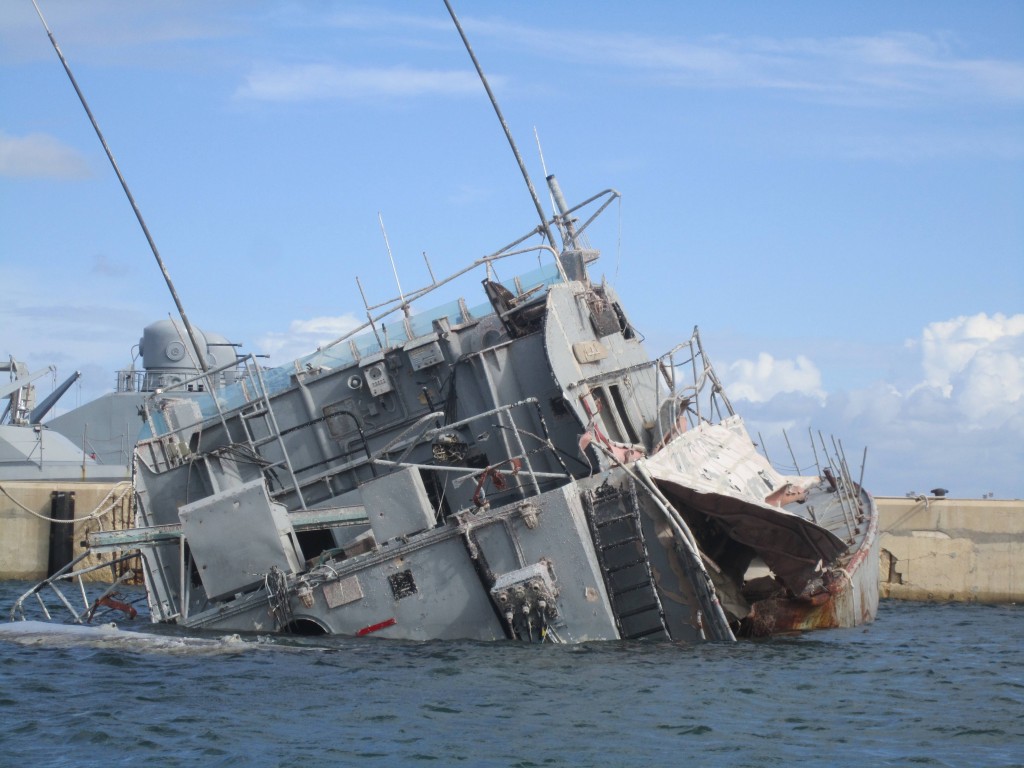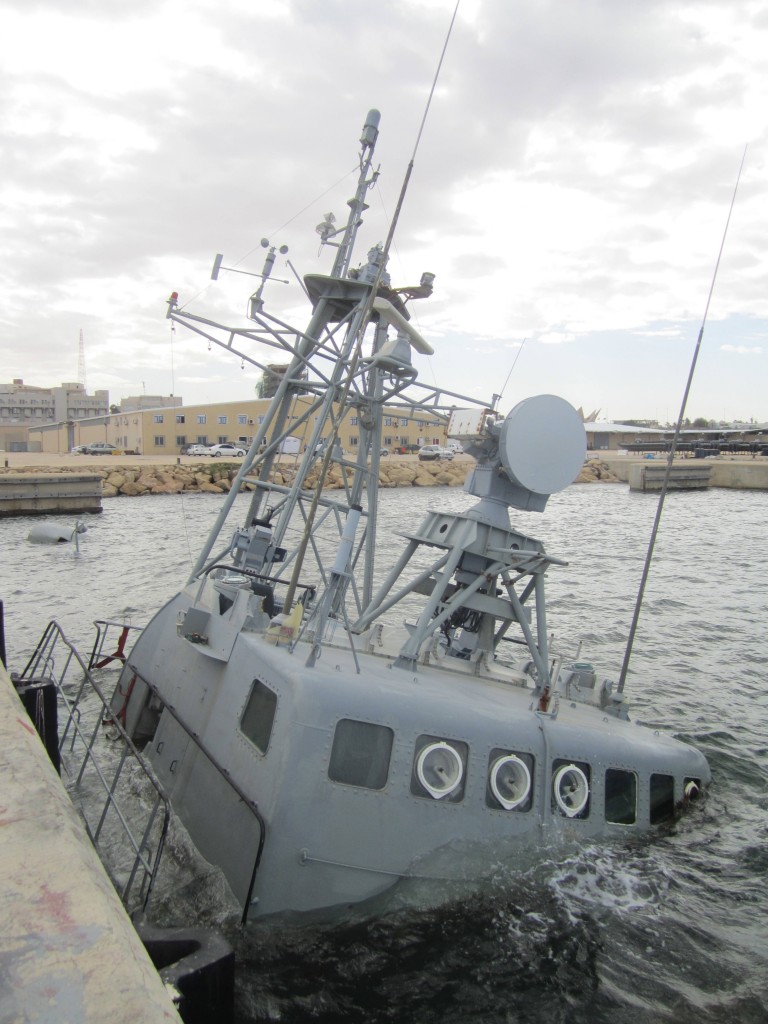By Tom Westcott.

Tripoli, 8 December 2013:
Draconian regulations forbidding scrap metal exports are preventing Tripoli Naval base from being cleared of semi-submerged . . .[restrict]warships sunk by NATO’s bombing campaign during the revolution.
The removal of the vessels, nearly three years after they were targeted by NATO, is being hampered by outdated laws and bureaucracy, Libyan Navy spokesman Ayob Ghasem has told the Libya Herald.
At least four warships of various sizes are clogging up berths in Tripoli Naval base and there are also several half-sunk ships at the Naval base in Khoms. It is not clear exactly how many vessels were sunk by NATO but on 20 May alone, eight coastguard boats and one frigate in three Libyan ports were reported as hit.

“We are still working to take them out,” Ghasem said. “Since liberation, a number of foreign companies have approached us, wanting to pay us to take the remains of the ships because they have a high scrap value abroad.”
However, an old law prohibiting the export of scrap metal has prevented Libya taking up the lucrative offers, which would have seen the boats re-floated and towed away.
“We set up a committee which has been working to remove the law because it would be in our economic interest to do so, it would be the best situation,” Ghasem said.
With no immediate prospect of the law being changed, however, the Navy is now looking to Libyan companies to shift the vessels. “The problem is that we will have to pay them to remove the ships because they are not able to make money from them – there is no economic interest for them.”
With Libyan companies – the names of which Ghasem declined to share – now lined up for the job, another bureaucratic issue is preventing raising and removing the vessels. The Ministry of Defence needs to give permission for the work to go ahead and this has not yet been forthcoming.
The legacy of NATO’s bombings is not just visible in Naval bases. Only last week, tons of unexploded ordinance, much of which reportedly came from NATO attacks, was finally destroyed in a controlled explosion.








